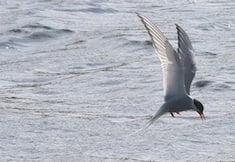 This year, I have the pleasure of teaching literature to our school's Elementary 1 students, children in second and third grades, a class that includes my own seven-year-old daughter Lana. Their uninhibited enthusiasm for learning, their eager quest to see connections, and their budding insights make them a delight to teach.
This year, I have the pleasure of teaching literature to our school's Elementary 1 students, children in second and third grades, a class that includes my own seven-year-old daughter Lana. Their uninhibited enthusiasm for learning, their eager quest to see connections, and their budding insights make them a delight to teach.
The first poem I introduced them to was "The Bird," by Victor Hugo.
Be like the bird, who
Pausing in his flight
On limb too slight
Feels it give way beneath him
Yet sings
Knowing he has wings.
We discussed what it means for the bird to "sing," "knowing he has wings," and we discussed what it would mean for them to "have wings" in their own lives: to be confident, self-possessed, secure in the understanding that you can overcome obstacles that might come in your way.
Soon after, we read the novel "A Door in the Wall," the story of a boy named Robin who is supposed to be apprenticed to a knight but loses the use of his legs and must find new meaning for his life. He does so brilliantly: learning to read and write, and then serve his lord and lady in the writing of letters; learning to whittle, sing, and play, and then making crutches and his own harp; and finally, building strength of body and character by swimming, and eventually playing a heroic role in the defense of his castle. He finds "a door in the wall."
One day, I asked the students, "How is Robin like the bird?" I then watched as one face after another illumined with the glow of a new understanding. They saw it.
In Lana's words: "They both have a problem and then they solve it. The branch is falling, but the bird knows he has wings, so he flies. Robin's legs don't work, but he learns to read and whittle and swim. They both find a door in the wall: if they can't solve something one way, they find another."
A proper reading program enables students to experience the joy of reading as they should: as an exciting plot, with inspiring characters, with a clear theme, and with insights they can then bring to their own lives and experiences. Students should not be grudgingly reading dull stories from textbook readers and completing unsatisfying, routine exercises about vocabulary, allegedly interesting facts, and topic sentences—they should be exposed to the joy and power of art.
The VanDamme Academy Email List features inspiring stories, exclusive commentaries, and special product offers from one of the best schools in America. Subscribe at www.vandammeacademy.com or send an email to [email protected] with the subject "Subscribe."
Related:
Image: Wikimedia Commons















